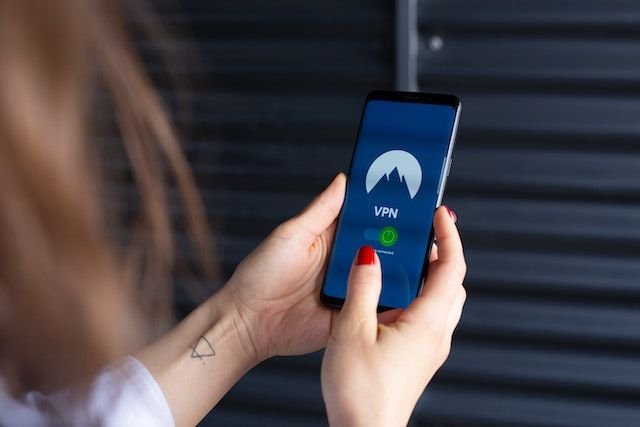Can You Have Two VPN Connections At The Same Time?

VPNs provide remote users with secure access to their organization’s resources and data. Most organizations implement dedicated security policies to restrict user access and provide an encrypted data transfer mode. VPN Servers are great at hiding IP addresses and securing data from people that may be scanning the unsecured internet.
You can increase your protection by using two VPN connections simultaneously by leveraging VPN split tunneling. However, using two connections does not mean that you’ll be deploying two VPNs. Instead, you will use two VPN servers from the same service provider.
What is a VPN?
A Virtual Private Network masks your real IP addresses and reroutes your traffic from a secure proxy server. Businesses use VPNs to connect to their secure resources within their infrastructure, while some use them to encrypt their communications. There are two types of VPNs most businesses rely on:
Remote access VPNs
Businesses use a remote access VPN to connect the users and the remote network. However, it consists of two key components:
- A dedicated server called Network Access Server connected to the business’s internal network.
- A VPN client that is installed on different endpoints to facilitate the connection.
Site-to-site VPNs
Businesses use site-to-site VPNs to create a single virtual network that can be used by multiple users at multiple locations. The VPN client is hosted on every office’s local network to remove the need to use the VPN client individually to access shared resources.
How Does a Business Connect to Two VPN Servers?
Instead of having your traffic and online data secured by one server, you can enhance the security by connecting to two different servers. Split tunneling adds another encryption layer to your traffic before it accesses the Internet. Additionally, you are not restricted to using only two connections; you can further increase your anonymity and encryption by adding additional servers to your VPN connection.
Doubling your VPN connection brings numerous benefits to your organization, like:
- Maintaining your anonymity because the second VPN server will not detect your real IP address.
- Encrypting your internet traffic two times, hackers will need to use better tools to decrypt your traffic.
- Improving data transmission security by using multiple encryption tunnels to access the target website.
- Access geo-blocked data through multiple VPN tunnels
- Using alternate TCP and UDP connection protocols to increase online security and improve anonymity.
How to Chain Two VPNs Together
Leveraging two VPNs is not a small feat; you must chain them together to work simultaneously. Here are some methods your IT team can use to chain two VPNs.
Double hop VPNs
Some VPN providers offer double hop, where users connect to a specific server, and their connection is immediately linked to another server that from a secure proxy forwards access requests. However, most double hop connects are static, meaning you can’t select the VPN servers that the configuration will use for a double connection.
Self-configurable multihop VPN connections
Multihop VPN connections work through VPN cascading, but the VPN provider needs to allow configuration within the VPN client. You can define which servers you want to include in VPN cascading; while the VPN provider will define the total number of hops, some service providers allow a standard of four VPN server hops.
Router setup and VPN client connections
The easiest way to set up a double VPN connection is to configure the VPN service on your router and install the VPN client on your system. This way, your traffic will first go through the VPN server configured on the router, and the second server will be accessed through the client.
Browser Extension and VPN client connections
Most VPN service providers offer a secure browser proxy alongside their client, and you can combine both of them to create a double VPN connection. However, you first need to connect to the VPN server through the client and then connect to the other through the browser extension.
Host machine and virtual machine
This option is for tech-savvy people who use a data center that hosts virtual machines. First, you will configure a VPN client on your host machine and then use VirtualBox or VMWare to set up a virtual machine. The host machine will continuously stay connected to a VPN client in the background while you use a virtual machine to connect to the second VPN server.
Why Do Businesses Need to Use a Double VPN?
Businesses strive to become anonymous while surfing the internet, mainly because threat actors are always scanning the internet to detect IP addresses and use them to uncover vulnerabilities in the system. Doubling VPNs adds additional layers of anonymity that protect the business’s online identity.
By configuring multiple VPN servers, the newer VPN server will detect the previous VPN server’s IP address after every hop. Any malicious party that identified the previous IP address will be unable to find where the server traffic exits. Your traffic is encapsulated with an additional layer of encryption after every server hop.
Therefore, anyone scanning your network can see encrypted traffic passing through one VPN server to the other, but they will be unable to identify the primary VPN server and destination node to identify your network. Even if they decide to decrypt your traffic, they will go through 3 or 4 layers of encryption because they can be successful.
Is Using Two VPNs the Right Option?
Despite the advantages and usability of chaining two VPNs together, businesses should not opt for it because it reduces the network’s speed. As you increase the number of VPN servers your client will use to hop through the Internet, the more you will have to compromise on network speed. Therefore, it’s advisable to use a different approach that can help you maintain your anonymity and security
Conclusion
Organizations can enhance multiple aspects of their cybersecurity by utilizing the potential of VPN Split Tunneling. Moreover, it deters any attackers from attempting such crimes in the first place. It helps reduce any potential risks by enabling the company to retain privacy on important traffic without having to protect all incoming or outgoing internet traffic.

